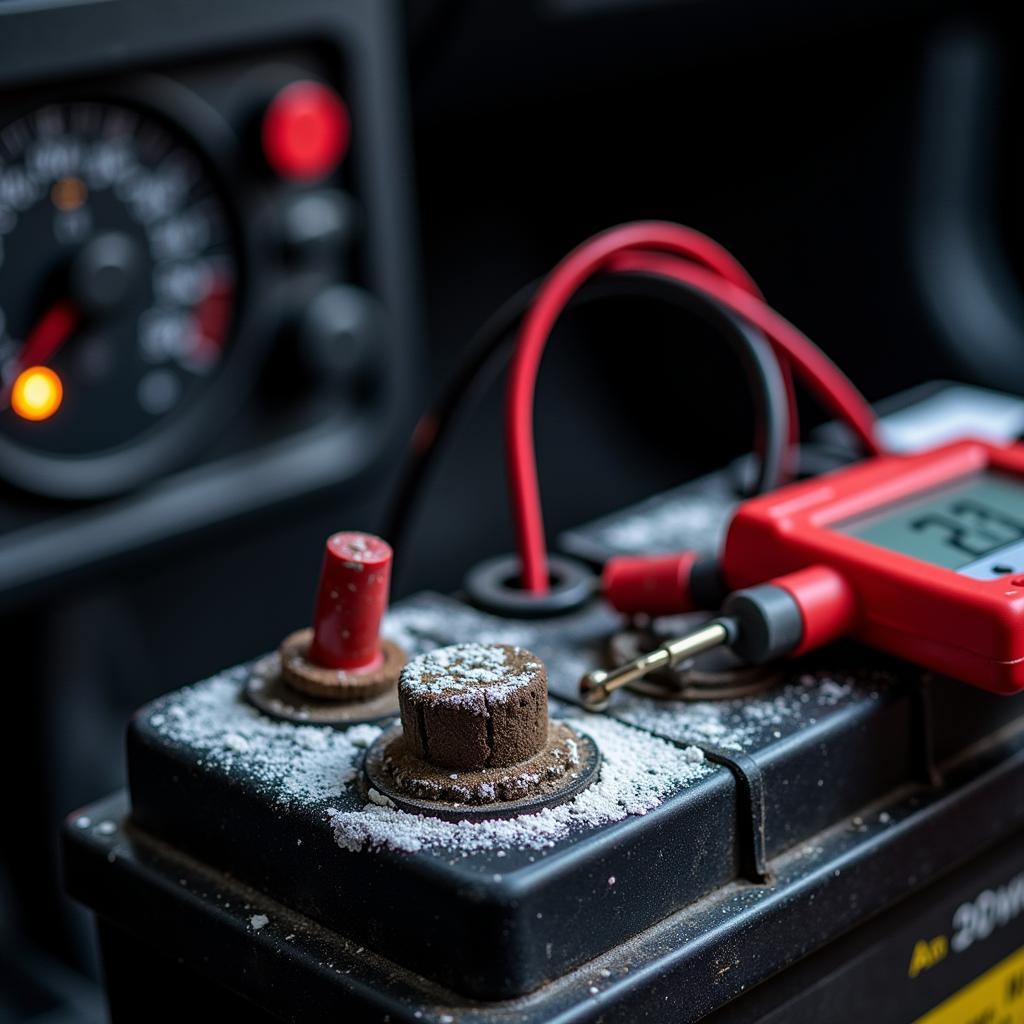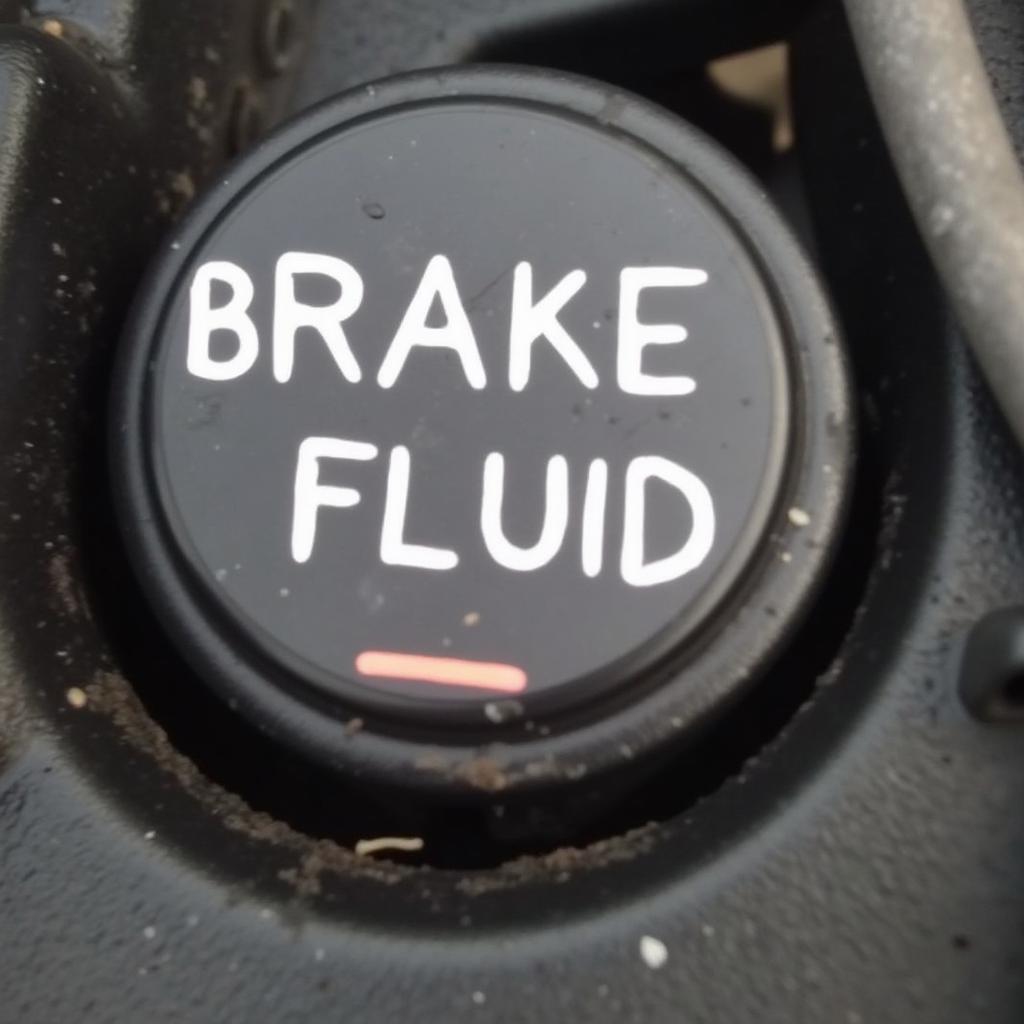A dead battery or a failing alternator can leave you stranded. Knowing the signs of a bad battery vs alternator is crucial for timely repairs and avoiding unexpected breakdowns. This guide will equip you with the knowledge to diagnose these critical components and keep your vehicle running smoothly.
Understanding the Battery’s Role
The battery is your car’s heart, providing the initial jolt of electricity to start the engine. It also powers various electrical systems when the engine is off, like the lights, radio, and security system. A healthy battery ensures reliable starts and consistent power delivery.
Common signs of a bad battery include:
- Slow engine crank: The engine struggles to turn over or cranks slowly.
- Dim headlights: Headlights are noticeably dimmer than usual, especially when idling.
- Clicking sound when turning the key: A rapid clicking sound indicates low battery voltage.
- Dashboard warning light: The battery or check engine light illuminates.
- Swollen battery case: Excessive heat can cause the battery case to swell or crack.
- Old age: Batteries typically last 3-5 years depending on climate and usage.
 Bad Car Battery Symptoms: Slow Cranking, Dim Lights, Clicking Sound
Bad Car Battery Symptoms: Slow Cranking, Dim Lights, Clicking Sound
Recognizing Alternator Issues
The alternator is the engine’s power generator, recharging the battery and powering the electrical systems while the engine runs. A malfunctioning alternator can lead to a dead battery and various electrical problems.
Key indicators of a bad alternator include:
- Dim or flickering lights: Lights may dim or flicker, especially at higher RPMs.
- Dead battery: A consistently dead battery despite jump-starting can point to a faulty alternator.
- Whining or growling noise from the engine: A failing alternator can produce unusual noises.
- Burning smell: An overworking or failing alternator can emit a burning rubber or electrical smell.
- Dashboard warning light: The battery or check engine light may illuminate.
How to Test Your Battery and Alternator
A simple multimeter test can help determine whether the problem lies with the battery or the alternator.
- Battery Voltage Test: With the engine off, measure the battery voltage across the terminals. A healthy battery should read around 12.6 volts.
- Running Voltage Test: Start the engine and measure the battery voltage again. The voltage should increase to around 14-14.5 volts, indicating the alternator is charging.
- Load Test: With the engine running, turn on the headlights, radio, and AC. The voltage should remain above 13 volts. A significant drop indicates a failing alternator.
Distinguishing Between Battery and Alternator Problems
Sometimes, the symptoms can overlap, making it tricky to pinpoint the culprit. Here’s a quick comparison:
| Feature | Bad Battery | Bad Alternator |
|---|---|---|
| Starting | Slow crank or no start | Starts fine but dies shortly after |
| Lights | Dim when engine off | Dim or flickering when engine running |
| Electrical | Issues primarily when engine off | Issues while engine running |
| Jump Start | May start but dies again quickly | May stay running |
Expert Insights
“A failing alternator often leads to a dead battery, but a dead battery doesn’t necessarily mean a bad alternator,” says John Smith, Senior Automotive Technician at Smith Auto Repair. “Proper testing is essential for accurate diagnosis.”
Another expert, Jane Doe, Lead Electrical Systems Engineer at Automotive Innovations Inc., adds, “Regular battery and alternator checks, especially in extreme temperatures, can prevent unexpected breakdowns and extend the life of these components.”
Conclusion
Understanding the signs of a bad battery vs alternator is vital for maintaining your vehicle’s reliability. By learning how to identify the symptoms and perform basic tests, you can address these issues proactively and avoid getting stranded. Remember, regular maintenance and timely repairs are key to keeping your car on the road. Don’t hesitate to consult a qualified mechanic for professional diagnosis and repair if you suspect a problem with your battery or alternator.
FAQ
- How long does a car battery typically last? Car batteries typically last 3-5 years, depending on usage and climate.
- Can a bad alternator damage the battery? Yes, a failing alternator can overcharge or undercharge the battery, leading to premature failure.
- Can I drive with a bad alternator? You can drive a short distance with a bad alternator, but the battery will eventually drain, leaving you stranded.
- How much does it cost to replace a battery or alternator? The cost varies depending on the vehicle make and model, but typically ranges from $100-$500.
- How can I prevent battery and alternator problems? Regular maintenance, including battery and alternator checks, can help prevent problems.
- What is the difference between a battery and an alternator? The battery provides the initial power to start the engine, while the alternator recharges the battery and powers the electrical systems while the engine runs.
- What should I do if my car won’t start? Check the battery and alternator, and if necessary, jump-start the car or call for roadside assistance.


